Liverpool vs Flamengo: Who are Brazilian Club World Cup finalists?
- Published
- comments
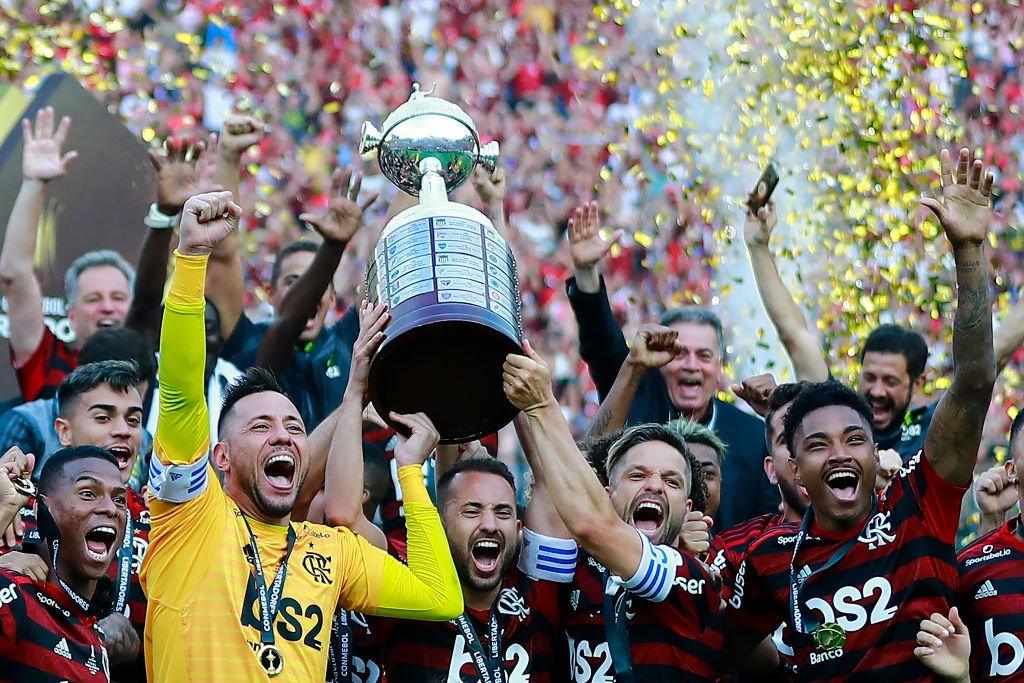
Flamengo won the Libertadores Cup and Brazilian league double in 2019
Fifa Club World Cup final: Flamengo v Liverpool |
|---|
Venue: Khalifa International Stadium, Doha, Qatar Date: Saturday 21 December Kick-off: 17:30 GMT |
Coverage: Watch live on BBC One, BBC iPlayer and the BBC Sport website and app. |
On their way to winning the Copa Libertadores earlier this year, Flamengo supporters broke into a familiar chant.
Roughly translated, it goes something like this: "In December 1981 we ran circles around the Englishmen/3-0 over Liverpool/It left a mark in history."
Ok, so pedants will note Bob Paisley's famous European Cup-winning side was reinforced with numerous talented Scots, an Irishman and a Zimbabwean, but the bare facts are that Liverpool and Flamengo have history.
And that history is on the side of Flamengo, who won the 1981 Intercontinental Cup - the forerunner to the Club World Cup - by overpowering Kenny Dalglish and co in Tokyo.
While European clubs generally had an attitude to the Intercontinental Cup that was ambivalent at best, in South America winning the trophy was seen as a significant achievement - hence the "mark in history".
More than 38 years on, we're here again: the six-time European champions against the best supported football club in Latin America.
Who are Flamengo?
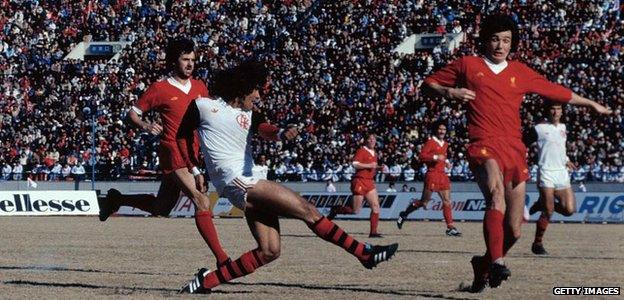
Flamengo's 3-0 triumph over Liverpool in the 1981 Intercontinental Cup is still remembered in supporters' songs
Founded in November 1895 as a rowing club, CR Flamengo (the 'R' standing for rowing) only started kicking a ball in 1912.
Despite a supporter base that rapidly swelled in size, on the pitch the club played only a minor role in the golden era of Brazilian football, which was dominated instead by the likes of Pele's Santos and Garrincha's Botafogo.
However, by the time they lifted their first national title in 1980, they had grown to become one of the best supported clubs in the country.
The early 1980s quickly became their own golden era. The team was spearheaded by legendary Brazilian playmaker Zico and claimed a stunning sequence of success - four league titles and the 1981 Libertadores Cup, followed by that aforementioned Intercontinental Cup triumph.
Results then fell away before another Brazilian league success in 1992.
But after that - and despite signing Romario just one year after he spearheaded the national team's triumph at USA 94 - Flamengo spent years in both a football and financial wilderness, flirting with relegation and bankruptcy.
How did they bounce back?
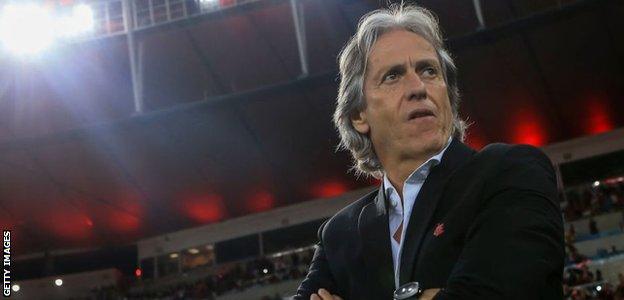
In five months, Portuguese manager Jorge Jesus turned Flamengo around
One particularly crucial step in the club's revival was the decision to reorganise the club's finances and deal with a debt that in 2013 amounted to £200m.
From one of the most debt-ridden teams in the country, Flamengo became one of the richest.
But still the trophies did not come. Well, not until the appointment of the messianic figure of Jorge Jesus in June.
The former Benfica manager became a rare case of European 'mister' - the term Spanish and Portuguese players use to describe their boss - to take a job in South America.
And he hit the ground running. He took over with Flamengo in third place and eight points off the lead after 10 rounds.
Five months later, they ended the season with a 16-point cushion over second-placed Santos and conquered the South American version of the Champions League with a dramatic 2-1 win over Argentina's River Plate.
How did this all happen?
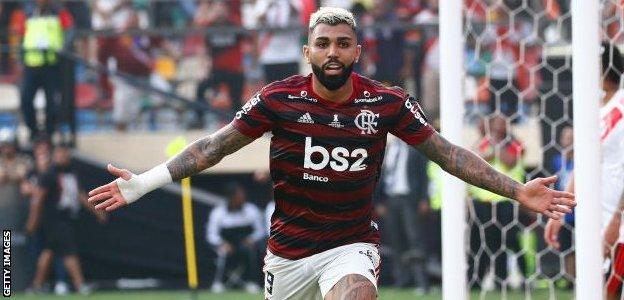
Gabriel Barbosa has netted 25 goals in 29 games for Flamengo in the league this year
Flamengo play a brand of attacking football that Brazilians have not seen at domestic level for some time.
Jesus' use of a 4-1-3-2 formation abolished the standard Brazilian deployment of more than one naturally defensive midfielder that has been so common since the 1990s.
By putting pressure on the opposition high up the pitch, Flamengo were merciless: they were unbeaten in 27 out of 29 games and scored 71 goals in the Brazilian League. They ended the season with 86 scored and 37 conceded - 22 during the Portuguese's tenure.
Flamengo averaged crowds of 55,000 in their home games, 20,000 higher than their nearest rival.
Who are the players?
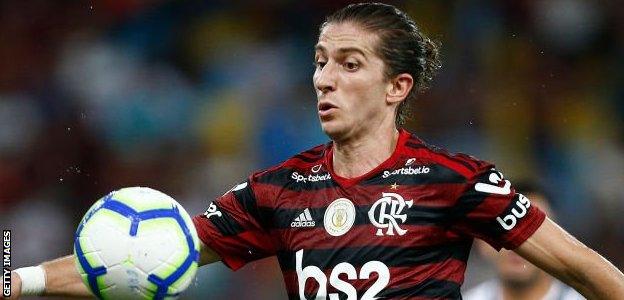
Former Chelsea full-back Filipe Luis helped Flamengo to glory in 2019
It is difficult to dissociate Flamengo's success from the incredible form of strikers Gabriel Barbosa - on loan from Inter Milan and nicknamed 'Gabigol' - and Bruno Henrique.
They were the Brazilian league's golden and silver boot winners (25 goals for Barbosa and 21 for Henrique). The Inter Milan man was also the Libertadores top scorer with nine goals.
But Jesus' team also has the crucial contribution of veteran full-backs: former Chelsea and Atletico Madrid defender Filipe Luis and Rafinha, a Bayern Munich legend.
Playmakers Everton Ribeiro and Giorgian De Arrascaeta - an Uruguayan who barely got playing time for his country in Russia 2018 - are also fan favourites.
In goal, 34-year-old former Valencia man Diego Alves is not as famous as his countryman Alisson, but was voted the best goalkeeper in Brazil this year.
Can they really beat Klopp's Liverpool?
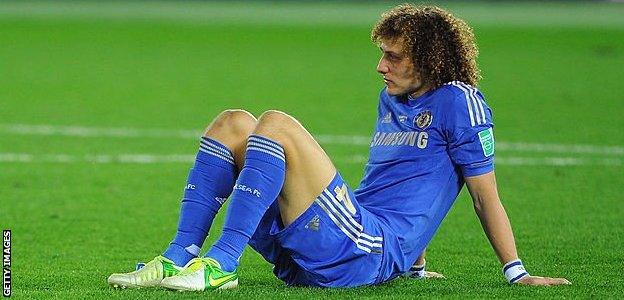
Chelsea were beaten by Corinthians in the 2012 Club World Cup final
Latin American sides have previously come unstuck against less fancied opposition in the Club World Cup. For example, Ronaldinho's Atletico Mineiro going out to Raja Casablanca 3-1 in the 2013 semis.
Having said that, an upset is not a ridiculous idea at all. In the Intercontinental Cup days, Liverpool were outclassed by Flamengo in 1981 and lost to Argentina's Independiente in 1984.
In 2005, their only Fifa Club World Cup campaign ended in a final defeat to another Brazilian side, Sao Paulo - although the English side dominated the game, missed numerous chances and had three goals ruled out for offside.
"Liverpool are superior to Flamengo but they sometimes win against smaller opposition in England without really dominating them," says 1970 World Cup winner Tostao.
"Flamengo can square up to Liverpool and beat them. Especially in a single game."